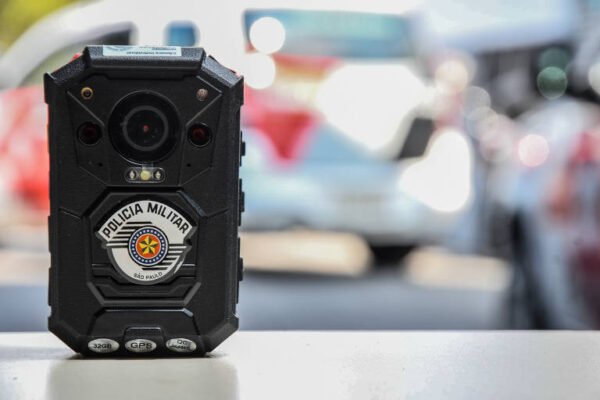The Sixth Panel of the Superior Court of Justice has established the understanding that the lack of body cameras on police officers can nullify convictions in cases involving personal searches. Unanimously, the ministers have established the need for the equipment to clarify conflicting versions between police officers and defendants.
This Content Is Only For Subscribers
To unlock this content, subscribe to INTERLIRA Reports.
Cases
The panel nullified three convictions involving drug trafficking that arose after searches carried out by the PMs of São Paulo, Goiás, and Rio Grande do Sul. The narratives of the police officers were questioned by the defendants and witnesses. In the ministers’ assessment, the dispensation of the cameras means that the State did not properly prepare itself for the production of evidence.
Federal Government Guidelines
In May of this year, the Ministry of Justice and Public Security drew up guidelines regarding the use of cameras on police officers’ uniforms. According to the data listed by the ministry, the equipment reduces the use of force and complaints about police conduct by 25% to 61%. The equipment must be turned on in 16 situations, including responding to incidents; identifying and checking assets; during operational actions, and in situations of opposition to police action, potential confrontation, or use of physical force. The rule states that public security agencies should preferably adopt automatic activation.
Incentive
The implementation and expansion of body camera projects by public security agencies will be taken into consideration for the transfer of resources from the National Public Security and National Penitentiary Funds. This means that the states that decide to use resources from their respective funds in projects will have to follow the guidelines of the Ministry of Justice and Public Security.
Resistance
In Brazil, the use of body cameras is still the target of resistance – and there has even been a setback in its implementation. In São Paulo, for example, the extensive use of the equipment by the Military Police began to be questioned with the arrival of Tarcísio de Freitas (Republicans) to the state government in early 2023. The significant drop in police lethality, largely attributed to the cameras, was reversed last year.
Questions in São Paulo
On Thursday (15), the government of São Paulo approved the result of the bid won by Motorola for the purchase of new body cameras for use by police officers. In an interview, the Secretary of Public Security, Guilherme Derrite, reinforced that the recording will not be done uninterruptedly, but rather during occurrences. The new notice provides that the recording can be started and ended by the officer himself and has been criticized by experts. Currently, the model works with uninterrupted recording.
Problems in Rio
A little over a year ago, the Supreme Federal Court ordered all military police officers in Rio to wear cameras on their uniforms during operations. Still, not all officers comply with the order. In several operations in the West Zone of Rio, images show police officers arriving at the police station with a suspect, without cameras on their uniforms. Despite the arrests, the PM claims that there is no shortage of cameras. All battalions have already received the equipment, including units linked to the Special Operations command. There are almost 13,000 cameras in operation. The PM claims that the use of the equipment is mandatory, that the cameras are activated automatically when the officer removes the device from work, and that there is no way to interrupt the recording.
Analysis:
The decision by the Superior Court of Justice (STJ) to overturn convictions due to the absence of body cameras in police operations highlights the growing importance of this equipment in ensuring a fair legal process. The cameras, which are gaining more space in law enforcement agencies, are essential to ensuring transparency and curbing abuses of power. They not only help protect citizens’ rights but can also be a valuable resource for police officers themselves, who now have a clear record of their actions, protecting them from false accusations.
However, resistance to the continued use of cameras, as seen in São Paulo and Rio de Janeiro, highlights challenges in implementing a policy that balances rigorous monitoring with officer autonomy. Although technology is a powerful tool for reducing fatalities and complaints, the way it is used, including the option for uninterrupted recording or monitoring by the officer himself, is key to its effectiveness. The stance of local authorities and alignment with federal government guidelines are crucial to the success of this policy, which promises to be a game-changer in Brazilian public safety.
Sources: G1 [1], [2]; CNN Brasil; Estadão; Metrópoles.




